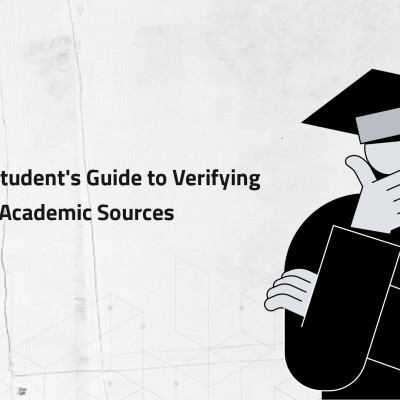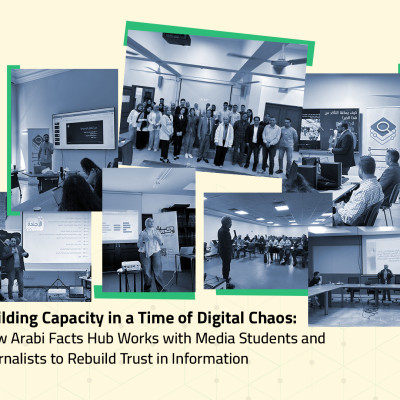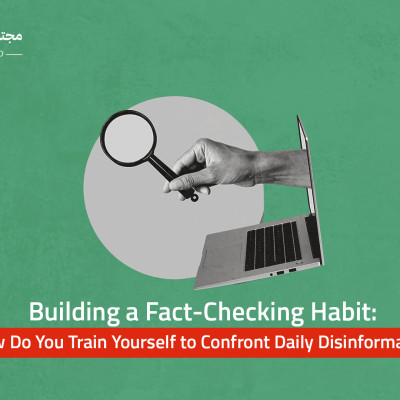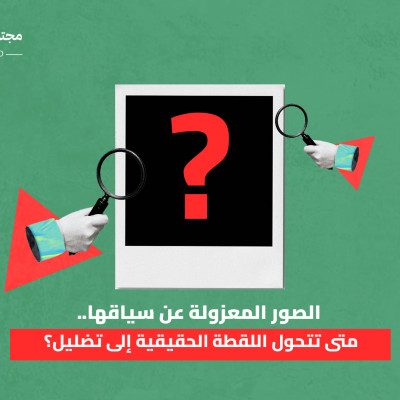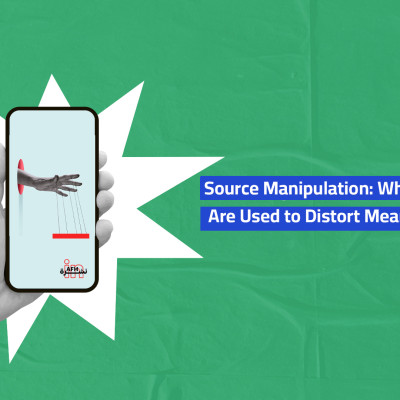Arabi Facts Hub Database: How to Access and Make Use of It?
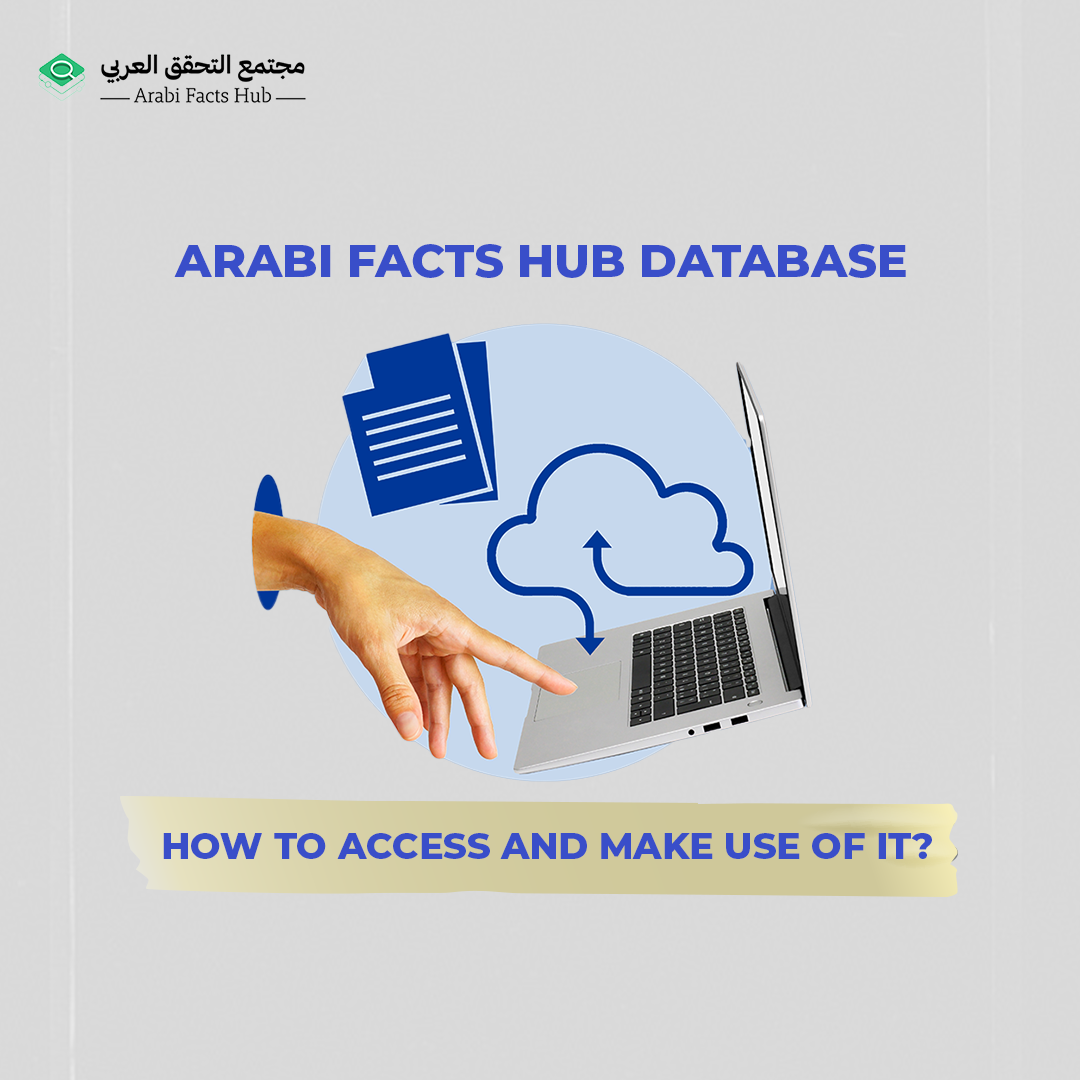
In 2021, Arabi Facts Hub launched its initiative which aims to create a comprehensive database that includes the efforts of content verification initiatives in the Arab world. It provides indicators to researchers on the state of misinformation in a region which is rife with conflict and negative propaganda.
In this article, the Arabi Facts Hub team sheds light on their database and provides guidance on how researchers, journalists, activists, and anyone interested in the field of fact-checking can benefit from it. The article also outlines the methodology used to build, update, and test the database.
What is the Arabi Facts Hub database?
In mid-2022, after reviewing a study on the challenges posed by information disorder in the Global South, the team concluded that the majority of fact-checked information covers highly localized contexts and that fact-checking in the Arab world is often tied solely to academic research. There also emerged a need to create a comprehensive database on fact-checking in the Arab world, taking into account the history and roots of conflicts and the diverse contexts in this region, as well as the importance of continuously updating this database.
Arabi Facts Hub began creating this database by relying on data sourced from Arabic-language content verification initiatives, in addition to leveraging artificial intelligence for data processing and analysis to study and test data patterns on social media. The database is characterized by the following:
- Accumulation: The database is continuously updated.
- Focus on written content: In addition to expanding the scope of the data to include images and videos.
- Reliance on contributions from fact-checkers and fact-checking initiatives.
- Organization in displaying data and diversity; The data is organized and varied, with classifications based on topics such as politics, economics, social issues, to name a few, as well as geographical location and chronological order.
- Built and verified by a specialized team at Arabi Facts Hub, in collaboration with a group of partners who adhere to the standards of objectivity, integrity, independence, and neutrality.
Data Collection Methodology
- The first step in ensuring the reliability and credibility of the database is to establish criteria for selecting partners who provide the necessary data to the Arabi Facts Hub team. The criteria for choosing partners can be summarized as follows:
- Independence: The platforms must not be affiliated with governments or political factions.
- Objectivity: The content must be presented impartially and without bias.
- Clear and Transparent Methodology: There must be a clear and transparent working methodology.
- The data undergoes a process within Arabi Facts Hub, starting from data collection, passing through classification, and ultimately being approved after ensuring its reliability.
Phase One: This involves collecting data either by extracting it in coordination with partner sites or by using a programming code that automatically retrieves the data, after obtaining the necessary permissions .
Phase Two: This is the data classification stage, which divides data into the following categories: Incorrect, Partially Incorrect, Satirical, Investigations, and Undefined.
Phase Three: Involves processing and evaluating the data, addressing informational and temporal gaps, and making the necessary recommendations to facilitate and streamline data handling and identification. This is based on factors such as time range, geographical location, and the type of fact-checked news. Filtering helps in quickly searching for values and controlling which data to view or exclude based on selected categories.
Phase Four: Making the comprehensive open-source database available on Arabi Facts Hub's website; to be utilized in various forms of research and journalistic production, such as reports, studies, and investigations.
What does Arabi Facts Hub offer to its partners?
Arabi Facts Hub aims to foster fruitful cooperation with its partners and offers the following:
- Support in developing and revising data
- Training on using fact-checking tools, open sources, and artificial intelligence techniques
- Joint collaboration in producing reports and investigations
- Enabling local partners to showcase their research output and develop access mechanisms
- Technical support in importing research output published on specific sites
- Technical support in extracting data from the Arabi Facts Hub website using programming languages and tools.
Steps to Access the Open-Source Database
The fact-checked information database is open-source, meaning it is available to any researcher, fact-checker, and data journalist. Interested individuals just need to follow these steps:
- Create an Account: Register on the Arabi Facts Hub website.
- Send an Email: To [email protected] to confirm your account, provide details about your research idea, its scope, research questions, and a brief bio about the researcher.
- Access Database: Once approved, the researcher will be granted access to download a database containing all fact-checked news from Arabi Facts Hub and its partners.
- Download: The database can be downloaded in Excel format.
- Use Keywords and Filters: Researchers can use keywords to narrow and customize their search, as well as filter by time range and geographical location.
- Interactive Map: With a researcher account on the site, a researcher can benefit from the interactive map that displays data according to geographic location.
- Additional Database: Researchers receive another database for non-partners that includes IDs of fact-checked publications; researchers are responsible for importing and manually analyzing this content or using advanced techniques such as Python, R, SPSS, etc.
- Research Requests: Arabi Facts Hub allows researchers to submit research requests or request specific tools, such as Meltwater, and the team will provide the results to the researcher.
This article is published in collaboration with Ijnet
